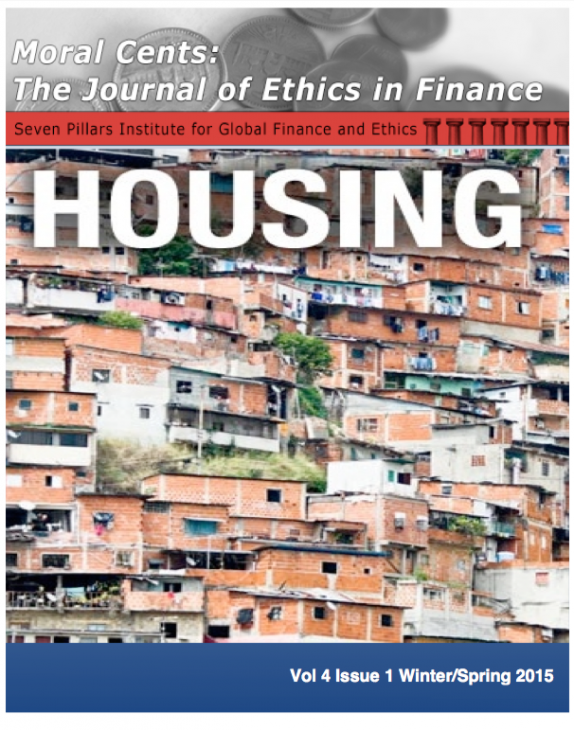Moral Cents: The Journal of Ethics in Finance (Winter/Spring 2015)

Residential property prices in major cities around the world, from Shanghai to San Francisco, New Delhi to New York, Bangkok to Berlin, are hitting heights unreachable to ordinary mortals. Median house price increases outpace median family income growth, pricing out the young and the middle income. The reasons for the stratospheric rise of property prices in major cities around the world are undoubtedly many and interconnected. Yet, it seems easiest to blame global and mobile plutocrats for accumulating prime properties and pushing up prices in international cities. London locals blame rich Russian oligarchs for the million pound price tags on undistinguished flats, while Vancouverites suspect Chinese nationals are responsible for high property prices in their city.
Daniel Strong attempts to shine some light on the issue in his article, “The Ethics of Foreign Investment in Residential Property Markets.” He investigates if it is indeed wealthy foreigners who push up prices in local housing markets using data from three cities: Vancouver, Sydney and Auckland. He also makes a moral case for government intervention in the housing markets.
Lest we forget the players who contributed to the Global Financial Crisis, Shazia K. Afghan writes about Royal Bank of Scotland (RBS) and its Icarus like fall. In her article, “The Pursuit of Good Management, Governance and Culture”, Shazia reminds us why RBS failed so spectacularly and gives some policy recommendations for improving governance by company boards and non-executive directors.
Aryaman Basu gives a further reminder of the contributions “Too Big to Fail Banks” made to reducing trust in financial services through their bad behavior. In “An Analysis of Libor Punishments” Aryaman evaluates the punishments meted out to offending banks for their roles in manipulating Libor and concludes, as most of us perhaps already have, the punishments were pusillanimous and do little to prevent future misbehavior.
Kitty Wong highlights possibly alarming moral issues in life insurance products in her lightly titled article, “Some Ethical Issues in Joint Life Insurance”. This form of insurance may result in sinister motives behind harming others if an insurance policy reaches its maturity date without the death of any member of the insured party. Read on…
Sumil Thakrar contributes the final and thoroughly engaging article in this issue. The piece is entitled, “Applying Buddhist Ethical Principals in Markets”. The distinction between chanda, desire for things that sustain well-being and tanha, desire for things which do not sustain well-being but give sense-gratification, may inform our use of planetary resources. Perhaps the Buddhist tradition has some contribution to make in providing an alternative or a helpful addition to neoclassical economics.
Dr. Kara Tan Bhala
Editor
Moral Cents: The Journal of Ethics in Finance is published by
Seven Pillars Institute for Global Finance and Ethics
ISSN 2326-5663
